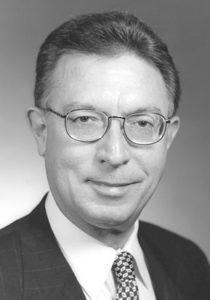 As you watch or read about the hearings this week in the Senate Judiciary Committee on the nomination of Judge Brett Kavanaugh to the U.S. Supreme Court, listen for the word “originalism” or the judicial concept behind the word. Whoever uses or cites it, whether Kavanaugh or any one of the 21 senators who will be interrogating him, remember that it is – to quote Mitt Romney during the 2016 presidential campaign – “as phony as a degree from Trump University.”
As you watch or read about the hearings this week in the Senate Judiciary Committee on the nomination of Judge Brett Kavanaugh to the U.S. Supreme Court, listen for the word “originalism” or the judicial concept behind the word. Whoever uses or cites it, whether Kavanaugh or any one of the 21 senators who will be interrogating him, remember that it is – to quote Mitt Romney during the 2016 presidential campaign – “as phony as a degree from Trump University.”
In fact, Donald Trump, in announcing Kavanaugh’s nomination at a White House ceremony on July 9, cited the principle when he said that what he is seeking to shape during his presidency is “a judicial branch immune from political prejudice where judges apply the Constitution as written.” For his part, Kavanaugh, in a carefully worded response to Trump’s remarks, smartly ducked the mantle of originalism: “A judge must interpret statutes as written. And a judge must interpret the Constitution as written, informed by history and tradition and precedent.” (emphasis added)
My own experience in covering Supreme Court nomination battles during the presidency of Ronald Reagan, as well as paying keen attention to those of subsequent presidents, is that more than one Judiciary Committee member will ask Kavanaugh if he endorses originalism. Should he succumb to the temptation to please such inquirers by answering in the affirmative, Kavanaugh will fall into a trap from which there is no easy way to extricate himself. My strong hunch is that he is much too savvy to take the bait. This is likely because in his White House nomination ceremony, as quoted above, he adroitly sidestepped the originalism trap.
Here’s why: Kavanaugh knows, as every senator of both parties should know, that originalism is a notion of recent historical vintage. Nowhere in the text of the Constitution is it even suggested. It certainly was not in the legal lexicon of the first chief justice of the United States, the futuristic John Marshall, who arguably appropriated extra-constitutional power unto the Supreme Court in the very first high court’s most significant decision, Marbury v. Madison (1803). In that case, the nation’s highest court actually invalidated a duly enacted Act of Congress – and got away with it.
Further, originalism as a legal principle simply did not exist until its invention by Reagan’s attorney general, Edwin Meese, who interestingly was present and warmly applauded when Trump acknowledged him during Kavanaugh’s White House presentation. Meese’s unveiling of the idea came in a 1985 speech to the American Bar Association when he advocated a “jurisprudence of original intention.” In more conservative legal services, the notion seemed to scratch a long-existing itch. That is to say, Meese’s originalism was instantly popularized and promulgated as something approaching divine wisdom.
“Edwin Meese’s originalism was instantly popularized and promulgated as something approaching divine wisdom.”
Lurking behind Meese’s pronouncement of originalism were decades of angry accusations by politicians, including presidential candidates that included George Wallace and Reagan himself, that the Earl Warren-led Supreme Court had exceeded its constitutional authority in a series of civil rights decisions, beginning with Brown v. Board of Education (1954), the landmark case invalidating segregated public schools. And what authority did the high court cite in striking down segregated schools? Nothing less than the Equal Protection Clause of the 14th Amendment.
(An interesting side note: Only one Supreme Court justice, Clarence Thomas, has argued that the 14th Amendment should not be applied to invalidate state statutes such as the Kansas law struck down in Brown. How supremely ironic that Justice Thomas took the seat of the late Thurgood Marshall, who long before his confirmation to the Supreme Court, was the lead attorney arguing the unconstitutionality of public school segregation in Brown. Thomas, who proudly refers to himself as an originalist, was confirmed by the Senate on a vote of 52 to 48. I know one U.S. senator voting for Thomas’s confirmation who a year later in a letter to the justice called his “Yes” vote the worst mistake he had made as a legislator.)
For those who know about the debate over biblical “inerrancy” that overwhelmed the Southern Baptist Convention a generation ago, the analogy between that mythical concept concerning the nature of biblical authority and judicial originalism as a basis for constitutional jurisprudence is noteworthy. Of more import is the sheer cynicism lying behind proponents of both inerrancy and originalism.
Paige Patterson, the recently disgraced, former president of Southwestern and Southeastern Baptist seminaries, who chose not to report the cases of two women claiming they were raped under his watch at those schools, was the exemplar of such cynicism. Speaking about another, but undisclosed, objective of the SBC takeover crowd to turn that convention into a reliably conservative voting bloc, Patterson predicted that the national political agenda would “go over nearly as well as the inerrancy thing.”
Edwin Meese’s “originalism thing” went over quite well, at least for a while. My sense is that opponents of Brett Kavanaugh’s nomination as the next Supreme Court justice will need to find other, more compelling, reasons to vote “No.”
